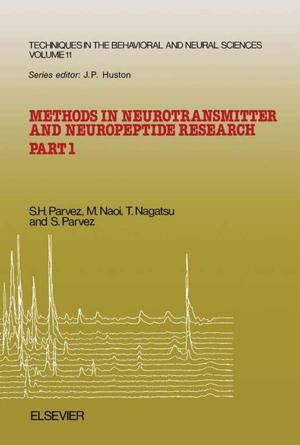Elasticity
Theory, Applications, and Numerics
Nonfiction, Science & Nature, Science, Physics, Mechanics, Technology, Engineering| Author: | Martin H. Sadd, Ph.D. | ISBN: | 9780124104327 |
| Publisher: | Elsevier Science | Publication: | January 22, 2014 |
| Imprint: | Academic Press | Language: | English |
| Author: | Martin H. Sadd, Ph.D. |
| ISBN: | 9780124104327 |
| Publisher: | Elsevier Science |
| Publication: | January 22, 2014 |
| Imprint: | Academic Press |
| Language: | English |
Elasticity: Theory, Applications, and Numerics, Third Edition, continues its market-leading tradition of concisely presenting and developing the linear theory of elasticity, moving from solution methodologies, formulations, and strategies into applications of contemporary interest, such as fracture mechanics, anisotropic and composite materials, micromechanics, nonhomogeneous graded materials, and computational methods.
Developed for a one- or two-semester graduate elasticity course, this new edition has been revised with new worked examples and exercises, and new or expanded coverage of areas such as spherical anisotropy, stress contours, isochromatics, isoclinics, and stress trajectories. Using MATLAB software, numerical activities in the text are integrated with analytical problem solutions. These numerics aid in particular calculations, graphically present stress and displacement solutions to problems of interest, and conduct simple finite element calculations, enabling comparisons with previously studied analytical solutions. Online ancillary support materials for instructors include a solutions manual, image bank, and a set of PowerPoint lecture slides.
- Thorough yet concise introduction to linear elasticity theory and applications
- Only text providing detailed solutions to problems of nonhomogeneous/graded materials
- New material on stress contours/lines, contact stresses, curvilinear anisotropy applications
- Further and new integration of MATLAB software
- Addition of many new exercises
- Comparison of elasticity solutions with elementary theory, experimental data, and numerical simulations
- Online solutions manual and downloadable MATLAB code
Elasticity: Theory, Applications, and Numerics, Third Edition, continues its market-leading tradition of concisely presenting and developing the linear theory of elasticity, moving from solution methodologies, formulations, and strategies into applications of contemporary interest, such as fracture mechanics, anisotropic and composite materials, micromechanics, nonhomogeneous graded materials, and computational methods.
Developed for a one- or two-semester graduate elasticity course, this new edition has been revised with new worked examples and exercises, and new or expanded coverage of areas such as spherical anisotropy, stress contours, isochromatics, isoclinics, and stress trajectories. Using MATLAB software, numerical activities in the text are integrated with analytical problem solutions. These numerics aid in particular calculations, graphically present stress and displacement solutions to problems of interest, and conduct simple finite element calculations, enabling comparisons with previously studied analytical solutions. Online ancillary support materials for instructors include a solutions manual, image bank, and a set of PowerPoint lecture slides.
- Thorough yet concise introduction to linear elasticity theory and applications
- Only text providing detailed solutions to problems of nonhomogeneous/graded materials
- New material on stress contours/lines, contact stresses, curvilinear anisotropy applications
- Further and new integration of MATLAB software
- Addition of many new exercises
- Comparison of elasticity solutions with elementary theory, experimental data, and numerical simulations
- Online solutions manual and downloadable MATLAB code















